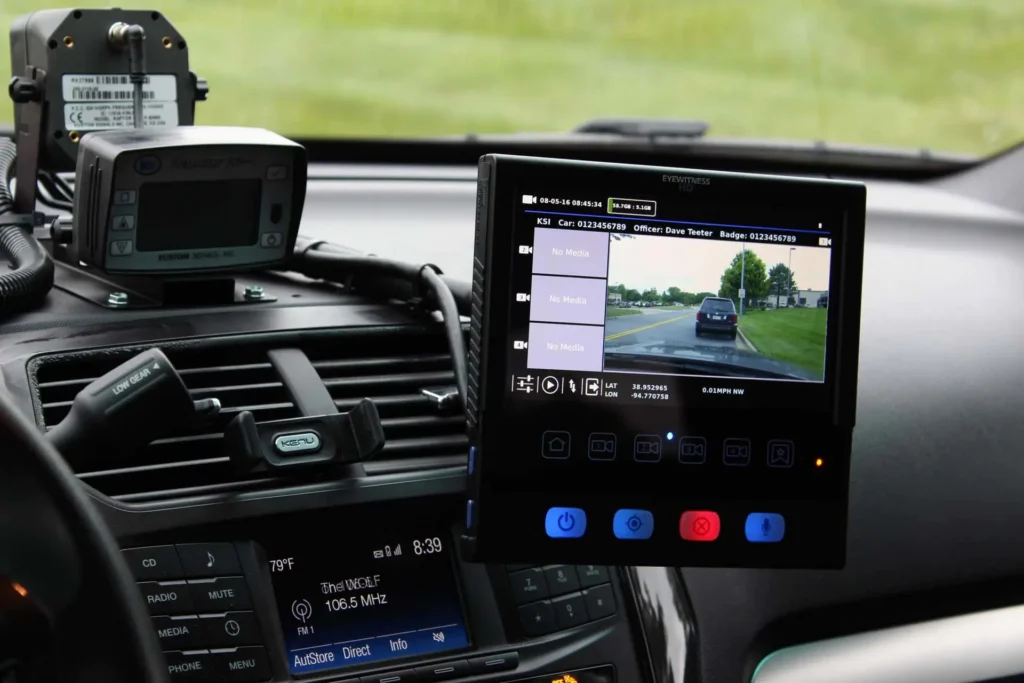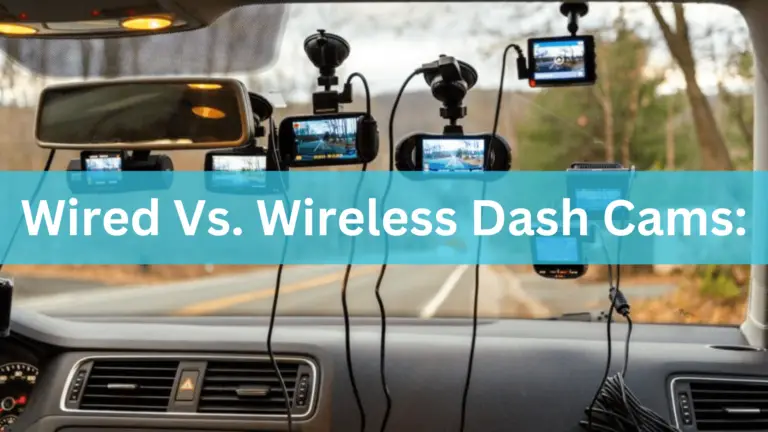Are Police Dash Cameras Always On?
In the age of surveillance and accountability, the use of police dash cameras has become a crucial tool for law enforcement agencies worldwide. These cameras serve as silent witnesses to the daily activities of police officers, capturing vital evidence in the line of duty. But are police dash cameras always on?
Police dash cameras typically activate and record automatically when officers turn on their overhead lights, documenting events during traffic stops and incidents. Yet, officers can also manually activate these cameras, extending their functionality beyond automation.

This article will examine how police dash cameras work and unravel the mysteries surrounding the Reasons Why Police Use dashcams. Prepare to have your assumptions challenged as we dig deeper into one of law enforcement’s invaluable tools for transparency and accountability.
What Dash Cam Do Police Use?

Law enforcement agencies have long relied on dash cameras to document evidence and enhance transparency in their operations. However, the DC7 police car camera system takes this concept to the next level with its state-of-the-art technology and user-friendly design.
Unlike generic dashcams available in the market, this advanced system is exclusively tailored for law enforcement, ensuring seamless integration into police vehicles.
One of the standout features of the DC7 is its high-definition video recording capability, which captures clear footage even in low-light conditions. This ensures crucial details are noticed during nighttime operations or in dimly lit areas.
Furthermore, the camera employs AI-powered algorithms to tag essential moments within recorded videos automatically. By doing so, officers can quickly locate and retrieve specific incidents without sifting through hours of footage.
5 Reasons Why Police Use Dash Cams

We will delve into five reasons why police use dashcams, each of which contributes to the overall effectiveness, safety, and accountability of law enforcement agencies.
To Aid In Evidence Gathering:
Police dash cameras are indispensable when it comes to evidence collection. They provide an unfiltered, real-time view of events as they unfold, offering valuable information for investigations and legal proceedings.
These recordings can be instrumental in documenting crimes, accidents, and interactions with the public, serving as an unbiased account of the incident. This not only aids in building more robust cases but also helps ensure that justice is served.
To Monitor Traffic Violations:

Ensuring road safety is a core responsibility of law enforcement agencies. Dash cams assist officers in monitoring traffic violations, such as reckless driving, speeding, and running red lights.
By capturing these incidents on camera, law enforcement can effectively enforce traffic laws, reduce accidents, and deter dangerous driving behaviors. This proactive approach contributes to safer roadways for all members of the community.
To Ensure The Safety Of Police Officers:
The safety of officers is of paramount importance. Dash cameras act as an additional layer of protection by recording interactions between officers and individuals they encounter during their duties.
In critical situations, these recordings can provide valuable insights into the decision-making processes of law enforcement personnel. They serve as a record of events, helping to clarify the circumstances surrounding any use of force and facilitating objective assessments of the officers’ actions.
To Promote Accountability:

Transparency and accountability are essential principles in modern policing. Dash cameras promote accountability by holding both officers and civilians accountable for their actions.
When officers know that their actions are being recorded, it can encourage them to adhere to departmental policies and maintain professionalism. Simultaneously, civilians can rest assured that their interactions with law enforcement are subject to scrutiny, fostering trust in the system.
To Protect The Police Vehicle And Equipment:
Police vehicles are valuable assets that must be adequately maintained to ensure they are always ready for duty. Dash cams can help protect these assets by acting as a deterrent against vandalism, theft, or damage to police vehicles.
When potential wrongdoers are aware of surveillance, they are less likely to target police cars. Additionally, these cameras can provide evidence in case of accidents involving police vehicles, assisting in insurance claims and investigations.
What Features Are Important In A Police Dashcam?

When it comes to police dashcams, one of the most crucial features to consider is the field of view. A wider field of view allows for more excellent coverage, capturing more details from the scene and providing a comprehensive perspective.
This is particularly important in law enforcement as it helps record interactions between officers and civilians, ensuring that crucial moments are not missed or misinterpreted.
However, it’s equally important to strike a balance with the field of view. While a wide-angle lens can capture more activity, it may also lead to distortion at the edges of the image.
This distortion can affect accuracy when analyzing evidence or identifying faces. Therefore, many dash cam manufacturers aim for an optimal field of view that captures enough detail without compromising on clarity.
Frequently Asked Question
What happens to the recorded footage from police dash cameras?
Police dash camera footage is securely stored for a specified period, which varies by agency and legal requirements. It’s often stored on secure servers or in the cloud to prevent tampering or loss. This footage serves as evidence in investigations and for accountability. Access is typically limited to authorized personnel to protect individuals’ privacy and security.
Can police officers turn off dash cameras at their discretion?
Officers cannot arbitrarily turn off dash cameras in many law enforcement agencies. Strict policies dictate when and how dash cameras can be activated or deactivated. These policies aim to ensure transparency, accountability, and accurate documentation of police actions. Deactivating a dash camera without proper justification can result in internal review and disciplinary consequences.
Do police dash cameras have audio recording capabilities as well?
Many police dash cameras have audio recording alongside video. They capture conversations during interactions, but usage follows similar policies as video. Officers usually must inform individuals when audio recording, adhering to wiretapping laws and privacy rules.
Final Thoughts: Are Police Dash Cameras Always On?
Police dash cameras are not always on but are typically set to activate when officers turn on their overhead lights automatically. However, they can also be manually started by the officer if necessary. These cameras are crucial in ensuring transparency and accountability in law enforcement interactions.
They provide valuable evidence during investigations and can help protect both officers and civilians involved in incidents. As technology keeps evolving, it is vital for police departments to regularly review and update their dash camera policies to ensure that they are being used effectively and ethically. Doing so can further enhance trust and confidence in our justice system.



